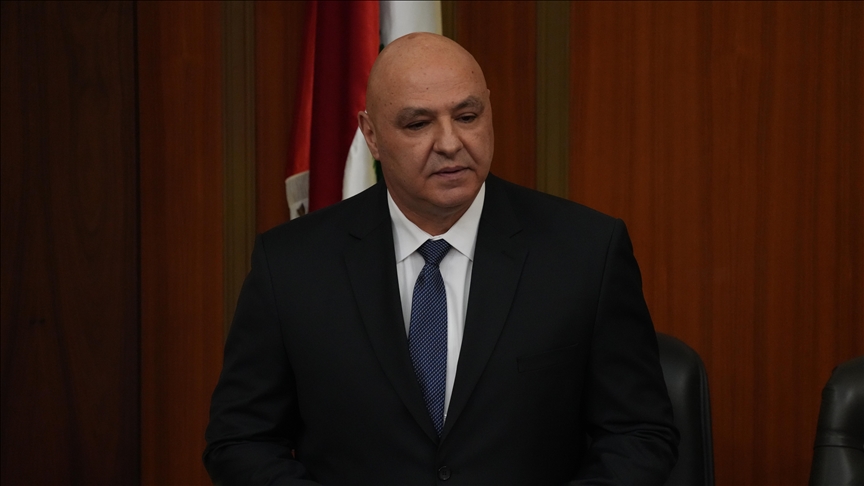Lebanon’s president says decision to disarm non-state actors is ‘irreversible’
Number of Lebanese army personnel in country’s south will rise to 10,000 by end of year, says Joseph Aoun
 Lebanese President Joseph Aoun
Lebanese President Joseph Aoun
ISTANBUL
Lebanese President Joseph Aoun said Tuesday that the decision to restrict weapons to state control is “irreversible and is being implemented carefully in a manner that preserves Lebanon’s unity and prevents harm to civil peace.”
His remarks came during a meeting with a delegation of journalists on the first day of his two-day visit to Bahrain.
He was responding to questions regarding the situation in Lebanon, according to Lebanon’s National News Agency (NNA).
Aoun’s statement comes a day after he handed US envoy Tom Barrack Beirut’s response to Washington’s proposal concerning the disarmament of the Hezbollah group and the withdrawal of Israeli forces from southern Lebanon.
“Israel has so far refrained from complying with the November 2024 agreement and continues its aggressions against Lebanon, ignoring international calls to cease hostile acts,” Aoun told reporters.
He stressed that “any solution requires guarantees for its implementation, especially since Israel has failed to fully comply with Resolution 1701, while Lebanon has honored the agreement by deploying the army south of the Litani River. The continued presence of Israeli forces on the five hills remains an obstacle to the army’s full deployment.”
Aoun noted that the number of Lebanese army personnel in the country’s south will rise to 10,000 by the end of the year, without specifying the current number, and wherever the army is deployed, it seizes weapons and ammunition and ends all armed presence.
“Our decision to save the state is final, and we will spare no effort to achieve it,” he added.
Cross-border warfare between Israel and Hezbollah in Lebanon escalated into a full-scale war in September 2024.
A ceasefire was reached in November, but Israeli forces have conducted near-daily attacks in southern Lebanon, claiming to target Hezbollah’s activities.
Lebanese authorities have reported nearly 3,000 Israeli violations of the truce, including the deaths of at least 258 people and injuries to more than 562.
Under the truce, Israel was supposed to fully withdraw from southern Lebanon by Jan. 26, but the deadline was extended to Feb. 18 after Tel Aviv refused to comply.
Israel still maintains a military presence at five border outposts.
Barrack said Monday that the ceasefire agreement “didn't work.”








